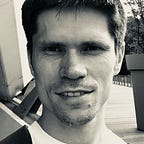Review of “Tribe of Mentors” by Tim Ferriss
I got to know about that book just recently from someone in the Internet and decided to give it a try. I didn’t have big expectations. But the result surprised me a lot. I never thought a single book can be of such huge value in different aspects of human life. Here are my key learnings from the book.
What this book is about
Timothy Ferris, the author, sent out a bunch of very well thought-through questions to a bunch of some famous and outstanding persons that have achieved a lot in their life. The selection was broad, from writers to wrestlers to cryptocurrency geniuses. He got answers and compounded the book. The book became a bestseller along with some of his other books.
To me the book was a revelation into the world of bright and distinguished minds, their habits and perception of the world. I couldn’t stop writing notes while reading the book. I was very intrigued.
In the following paragraphs, I’m listing some of the things I got to know and started practicing even before I finished the book.
Deep Work/Focus
The idea here is that if you remove all the distractions and focus on just one thing at a time for a limited amount of time, then you’ll deliver high results.
I got to know there are headphones with so-called “active noise cancellation” which block the outside noise. And there are music services that are focusing on producing special music to put you into a more focused mode. I combined those two things: I bought the headphones and subscribed to brain.fm (I also found another similar service focusatwill).
I like how it goes so far. Besides the obvious benefits of not being interrupted by the surrounding noise, it has one more — you listen to the music for limited time intervals of 30/60/90 minutes. Once the time is over, the music is over and you know it’s time to take a break. So it trains you to be more disciplined.
I also made a bookmark to read “Deep Work: Rules for Focused Success in a Distracted World” to learn more about this topic.
Practice Habits
The idea here is that you can achieve a lot in you life if you introduce tiny little things, practice them daily and make them your habits. For example, “Get up at 5.00 in the morning” and “Read a book”. Important here is repetition and also such habits shouldn’t take long and intimidate you.
To help you implement this idea, there is a thing called “Habit Tracker”, where you put a list of things you want to follow and mark them as “Done”. Visualization helps you see how good you are at it.
Here is how my Habit Tracker looks like:
There is a nice book on this topic Atomic Habits: An Easy & Proven Way to Build Good Habits & Break Bad Ones which I want to read any time soon.
Language Learning
I started actively learning German several months ago. I used one of the beginner textbooks from one of the courses as guidance, I went through chapter after chapter. I also used anki to help with memorizing words.
The problem though is that I always had a feeling that my approach was far from being optimal and my progress was too slow.
The book and the author’s blog gave me insights into interesting approaches of 3 language learners - Benny Lewis, Gabriel Wyner and Tim Ferriss (the author).
My key takeaways:
- you can learn any language and start making decent conversations within a year. It’s doable.
- when learning new words, the order and the words themselves matter.
- when learning new words, use pictures (google images to the rescue) and pronunciation examples by native speakers (forvo.com can help you here)
- when learning new words use spaced repetition technique (Anki will help you here)
- learning how to pronounce the sounds of the language and how to distinguish sounds matter (fluent-forever.com’s materials can help you with that)
- start making real conversations as early as possible
And more to come
There are a bunch of other things I got to know and I’m really keen to learn more about them. Here is my list.
- “Total Immersion” by Terry Laughlin — a unique approach to become an efficient swimmer and get fun from the process.
- Meditation. Most of the folks mentioned that practicing this or other kind of meditation had tremendously helped them. I was always skeptical about such a thing. But now I got intrigued. For example, I want to know more about the following meditation types:
- transcendental meditation
- vipassana meditation - Many many books referenced by the folks from the book
